Let’s Talk About Sex (Work)
This tweet from @GraffitiRadical invoked quite the conversation. Well, as much conversation as you can have on Twitter. Some argued that it is empowering and that it’s a legitimate profession. Others argued that it’s exploitative and damaging. Some refuse to even use the term ‘sex work,’ favouring language such as prostitution. To others, it’s interchangeable.
However, currently and historically, the technical and legal term for sex work is prostitution, something many advocates wish to see changed, arguing the term creates stigma. Opponents of the practice would say this is rightly so, given the nature of the practice.
However angry the arguments, however poor, it doesn’t take away from the fact that it’s something that exists. It may be tucked away in the shadows of the night or blatantly advertised on OnlyFans, but it exists. They don’t call it the world’s oldest profession for nothing. Pictures and paintings showing prostitution still exist from the times of Ancient Rome. Courtesans could make a lot of money by being chosen by a rich benefactor. The 90s film Pretty Woman showed the profession in a new light.
Whatever you want to call it, there’s still a major debate about the morality and legality of prostitution. One only must look across the world to see how different cultures tolerate the practice-or if they do at all. That being said, laws do not always impact supply and demand. Prostitution exists in liberal secular nations as well as conservative religious ones. It happens in peacetime and in wartime. Prostitutes and clients come from all walks of life.
So, what is it really?
The Whos and the Whats
When we think of prostitution, we often think of ladies in revealing clothing on street corners. That may be true, but streetwalkers aren’t the only type of prostitute. There are those who work in brothels, massage parlours and bars, or as escorts or cam girls. One may think of the window and door girls in Amsterdam. Other forms exist but are rarer.
Statistically, it’s thought that the vast majority of prostitutes are women. According to Streetwalker, 88% of prostitutes in the UK. That percentage is likely applicable worldwide give or take, but we will never truly know given the taboo nature. Sadly, child prostitution is not unheard of and is indeed common, with some areas being tourist hotspots for those interested in that.
Entry into prostitution also varies.
Types of Legislation
There are five types of legislation regarding prostitution.
Legalisation
In legalisation, prostitution itself is both legal and regulated, as are associated activities such as pimping and earning money. Countries with this framework include The Netherlands, Argentina, Turkey, Bangladesh, and Germany.
The Netherlands is probably the most infamous example of legalised prostitution. Its capital of Amsterdam is a hotspot for prostitution, and its red-light district is equally well known. There is strict regulation of the trade as with any ordinary profession, and prostitutes have been required to pay income tax and register with the Chamber of Commerce since 2010. While they are taxed, they may also receive unemployment benefits, though they do not if they work through the opt-in system.
Some limits do exist to protect the vulnerable. The hire or use of prostitutes under 21 is illegal, as is purchasing sex from someone you know, or suspect has been trafficked.
Despite benefits for the parties involved and protections for vulnerable people, it’s no cakewalk. The Netherlands still remains a top destination for human trafficking due to the demand for prostitution. Most prostitutes in The Netherlands are not native, giving credence to the narrative of human trafficking. Meanwhile, prostitutes themselves feel as though the government is not on their side. The majority of those who apply for registration do not get it, whilst local authorities are closing windows and do not allow prostitutes to book clients online. In response, prostitutes are complaining that the restrictions reduce demand and make it harder for them to find work.
Decriminalisation
New Zealand, Belgium, New South Wales and Northern Territory
Decriminalisation means that there are no legal penalties for prostitution but that it is not legal itself, nor anything associated with it. Countries with this framework include New Zealand, Belgium and parts of Australia, such as New South Wales and the Northern Territory.
New Zealand became a model for decriminalisation following legislative changes in 2003. Prostitution, living off earnings, soliciting and contracts are all legal. The government recognises it as work but does not promote it. Limitations do exist, such as using girls under 18, those on short-term visas entering the trade and non-Kiwis or Aussies owning brothels.
Whether or not this has succeeded in helping prostitutes depends wildly on opinion. Anecdotal evidence varies- the lady in this piece feels much safer, whilst another argues it’s still incredibly dangerous. A report from July 2012 by the New Zealand government concluded that whilst it was far from perfect, it had made steps in the right direction. This report says otherwise.
In terms of advocacy, the New Zealand Sex Prostitutes Collective (or NZPC) is the largest in the country. They help any prostitute and advocate for all types. Their website explains the New Zealand model and their case for why decriminalisation must stay.
Abolitionism
In abolitionist legislation, the act of prostitution is legal, but everything else related to it is against the law. Countries with this framework include Madagascar, Democratic Republic of the Congo, Mexico, Brazil, and Great Britain.
Great Britain has long had an abolitionist model. Like the Netherlands, it’s illegal to have sex with a prostitute who has been trafficked. The age of prostitutes is also set at eighteen, higher than the age of consent of sixteen. All other parts of prostitution, such as living off wages and brothels, are illegal.
Groups both for and against prostitution exist. Both the English Collective of Prostitutes and the Sex Worker Advocacy and Resistance Movement (SWARM) support full decriminalisation. Streetlight U.K. and Beyond the Streets. Meanwhile, the safety of prostitutes in the U.K. is precarious. One 2018 article states that the mortality rate for prostitutes is twelve times the national average for example. Those with opposing views are at odds on what would help.
Neo-Abolitionism
In neo-abolitionism, the act of selling sex is not a crime, but buying it is, along with other associated acts. This is often called ‘The Nordic Model.’ Countries with this framework include Canada, Spain, Ireland, Sweden and Norway.
Sweden’s lurch towards neo-abolitionism at the turn of the century was the first of its kind. In 1999, they made the act of selling sex illegal, with everything else remaining against the law.
A 2010 investigation from the Swedish government came to this conclusion:
- Street prostitution had decreased.
- The law had acted as a deterrent to prospective buyers of sexual services, reducing demand.
- The law had deterred trafficking, as criminals had not so readily sought to establish organised trafficking networks in Sweden.
- The number of foreign women in prostitution had increased, but not to the extent noticed in neighbouring countries.
- Online prostitution had increased in line with all other sold services since 1999, but not to the extent that it could be said that street prostitution had simply migrated.
- Exit strategies and alternatives had been developed.
- There had been a significant change of attitude and mindset in society.
- Adoption of the law had served as a pioneering model for other countries.
Street prostitution has also decreased by 50% since 1995. A 2021 report also showed that the use of online services has increased, particularly among young people.
As of 2023, prostitutes are taxed on their income.
Unfortunately, Sweden remains a top destination for sex trafficking. The number of those trafficked into the country has steadily increased over the years, particularly children. Sweden tends to be very proactive in combating trafficking, but opponents may point to this as an example as to why their laws do not work.
Red Umbrella Sweden, a group made up of current and former prostitutes, is one example of advocacy. They oppose the Nordic model and push for full decriminalisation.
Prohibitionism
In Prohibitionism, anything to do with prostitution, including the act itself, is illegal. Countries with this framework include Egypt, South Africa, the USA outside of parts of Nevada, China and Russia.
Prohibitionist Egypt actively prosecutes those who partake in prostitution. One can receive between six months and three years in prison for the crime, as well as a fine. All other acts linked to prostitution, including facilitating it and profiting from proceeds can get a person up to three years in jail. Adultery is also a crime, but one that unfairly penalises women more. Women who commit adultery can receive three years in prison, but for men it is six months, and only if it is done inside the home.
One way in which charges of prostitution can be avoided is through a temporary marriage-or nikah mut’ah. It is common in Muslim countries. For a specified period of time, which can be between hours and years, a couple is said to be married. This allows any sexual activity done in this time to be ‘legitimate.’ Payment is often involved, as is a dowry. The length of time of the marriage must be chosen beforehand and the father of the girl must give his consent if she has not been married before. It is said that Arab men often travel to Egypt for the summer and engage in these marriages. Both Western and Muslim feminists argue that this facilitates prostitution.
Arguments For and Against
Prostitution has its supporters and its critics. They make varying points based on personal views, religion, ideas of women’s rights, economics, and other things.
For:
Consenting Adults: Probably the most libertarian argument of the bunch, some contend that as long as it’s involving consenting adults, then what’s the problem? An argument is to be made that so long as both sides are consenting to sex, then it is a victimless crime. One must also remember that they are surely consenting to risks of pregnancy and STIs by this action and are thus unable to complain about said risks. Philosophically, it’s an argument of self-ownership of the body, and thus being able to do with it as one pleases. If we circle back to those involved being consenting adults, then there’s the argument.
Taxation: In Nevada, Sweden and The Netherlands amongst others, prostitutes are subject to income tax. Brothels are also subject to business tax in Nevada. From a purely economic standpoint, some would argue that this is just good business sense. By legalising prostitution, you’re creating an income stream that can be used like any other. Those taxes may go into welfare benefits for the prostitutes themselves, or other things such as schools and healthcare.
Safety and Justice: Proponents argue that if prostitution is legal or at least decriminalised, then prostitutes who have been raped, robbed etc will be able to go to the police. This is the case in New Zealand, as police will respond to prostitutes in distress. Those for legalisation argue that by keeping prostitution underground, those who are in genuine need of help will not reach out due to fear of being arrested themselves. That is, however, assuming police will be of any help. That said, it also could reduce the risks of clients doing anything bad, as they would be aware that there are consequences.
Health: With some prostitutes having been arrested after large amounts of condoms were found on them, some argue that criminalisation may decrease the sexual health of both prostitutes and clients. If a prostitute chooses to have sex without a condom, there’s a potential spread of STIs, both treatable and more serious. Furthermore, if it is legal, then outbreaks can be more easily traced and stopped. One might point to Nevada, with its mandatory testing, condom usage and barring violent customers.
Inevitability: Prostitution is, as has been previously said, often named the world’s oldest profession. It happens in poor and rich countries, conservative and liberal places, and in both peace and wartime. One only must see how widespread it is. Thus, one might argue that seeing as prostitution is essentially an inevitability, it might as well be legal and moderated. After all, centuries of illegality haven’t stopped it. That being said- a lot of things are inevitable.
Against:
Forced Prostitution: There’s no way to determine the amount of prostitutes forced into the job by trafficking, but the amount certainly isn’t zero. Legalisation, even with law enforcement backing, does not necessarily prevent trafficking. There’s a bit of back and forth as to whether legalisation increases or decreases trafficking, but the point stands that it will always be there. By legalising it, it seems almost certain that violent pimps and traffickers will not have more of an imperative to flood the market.
Class and Sex: The vast majority of prostitutes are women. Of those in the trade itself, a number are either trafficked or come at it from an economic standpoint. Those who are most at risk of trafficking or survival sex come from minority and poorer socio-economic backgrounds. This thus puts them at a disadvantage when being put with clients who have the ability to pay for their services. Is that not taking advantage of the most vulnerable?
Normalises: Much in the same way the ‘consenting adults’ justification is a libertarian argument, the next is more conservative in nature. One might say that legalising prostitution might normalise it. For some, normalising it is not an issue. For others, they may not want to normalise casual sex with strangers. This is especially true if the clients are married as it could serve as an outlet for adultery. In a feminist twist on the argument, one might say that it normalises a more powerful person paying for the body of a marginalised one.
Doesn’t Stop the Root Causes: There are numerous reasons as to why people enter prostitution. Some want to simply work at something they enjoy or take advantage of the potentially good pay. Others are victims of trafficking, survival sex, poverty, or addiction. Some argue that legalising prostitution does not get to those root causes. People may still enter prostitution because of those reasons even if it is legal. Would it be preferable to help those most in need?
Doesn’t Stop the Violence: Proponents of legalisation and decriminalisation argue that prostitutes are safer under those methods. Whilst that may or may not be true, it doesn’t prevent violence at all. One might point to the murder of Anna Louise Wilson, a New Zealand prostitute murdered after the client refused to wear a condom. Another might point to the fact a prostitute was murdered in a German brothel, the largest in the world.
What Do We Do?
When it comes down to it, it’s clear that there isn’t much of a consensus on prostitution. Despite the trend towards legalisation and decriminalisation, there are still those who oppose it.
Prostitution isn’t just a woman- or a man- having sex for money. It’s about choice, desperation, desire, and fear. There are those who see it as a job, whilst there are those who were forced into it. Some want to leave. There are pimps, brothels, websites, street corners and clients, not by sheer accident, but because supply is often preceded by demand.
Of course, we must listen to prostitutes themselves. They are the ones with first-hand experience of selling their bodies at great risks and under varying circumstances. Many have been victims of child sexual abuse, rape, domestic violence, and addiction. For those who are comfortable in their trade, legalisation and decriminalisation is considered a comfort. For others, it’s no safety blanket. Indeed, many supporters of prostitution uniformly view prostitutes as consenting participants whilst many opponents uniformly view them as victims of manipulation. Unfortunately, things aren’t that simple.
There are some reading this who will want prostitutes to be able to freely work without governments coming down on them. There are others who may be disgusted at the idea of the state sanctioning it. Whatever the case, one hopes that this article has helped them understand the dimensions of debate which surround this controversial and complex issue.

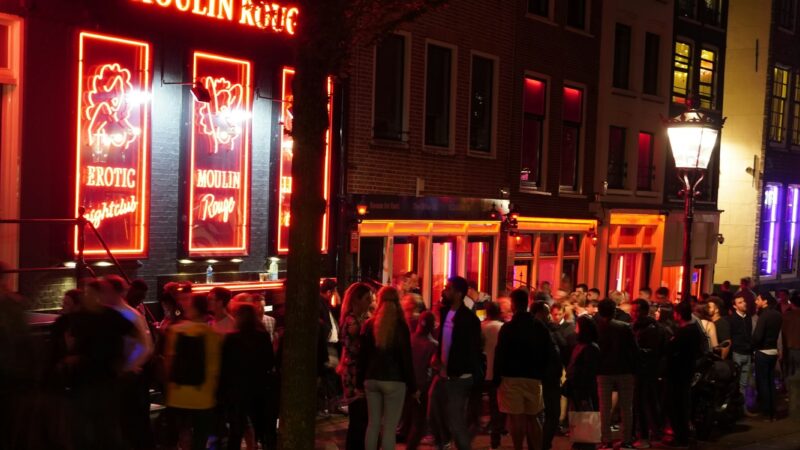

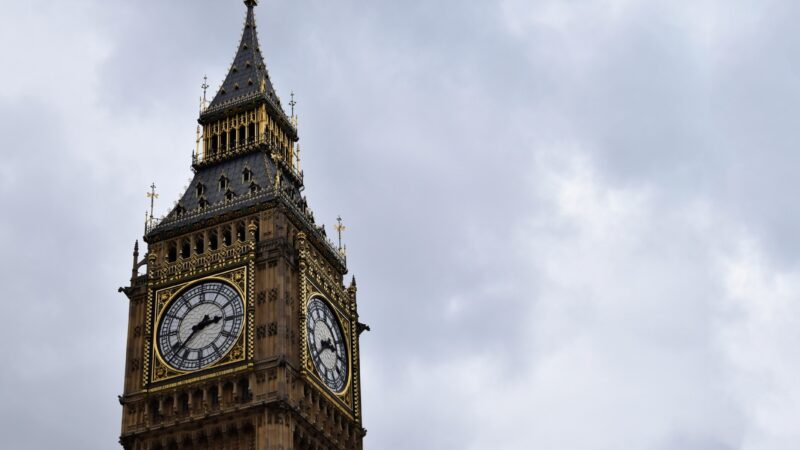

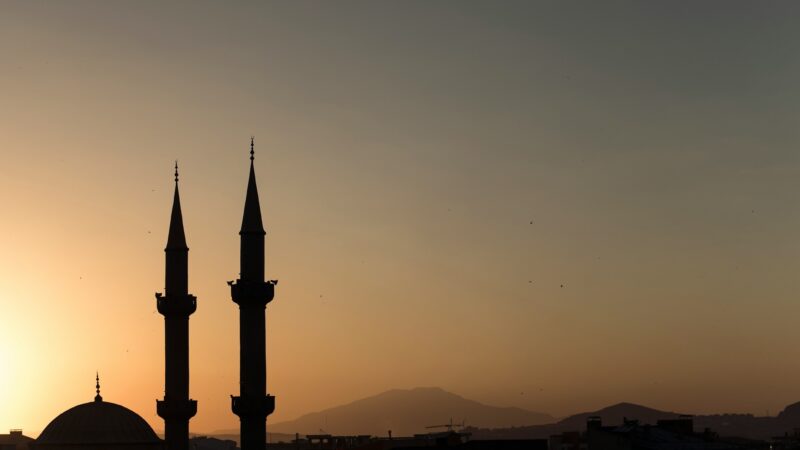
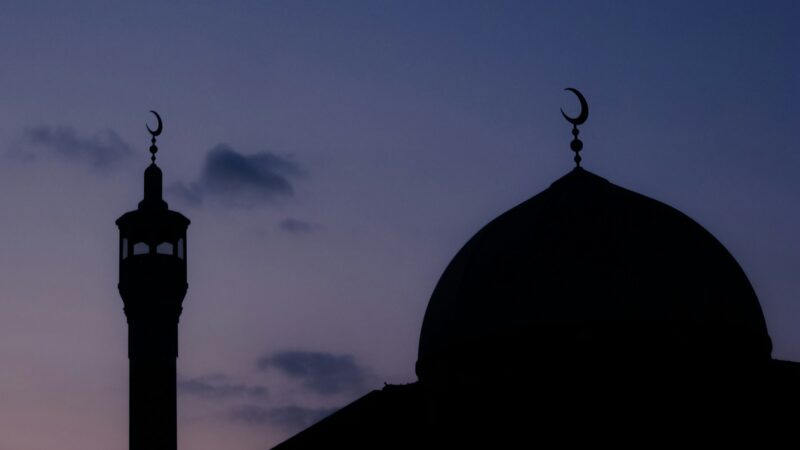
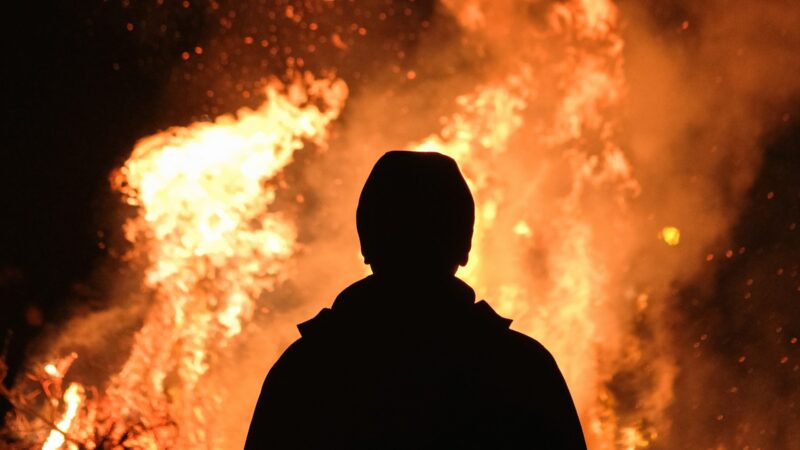

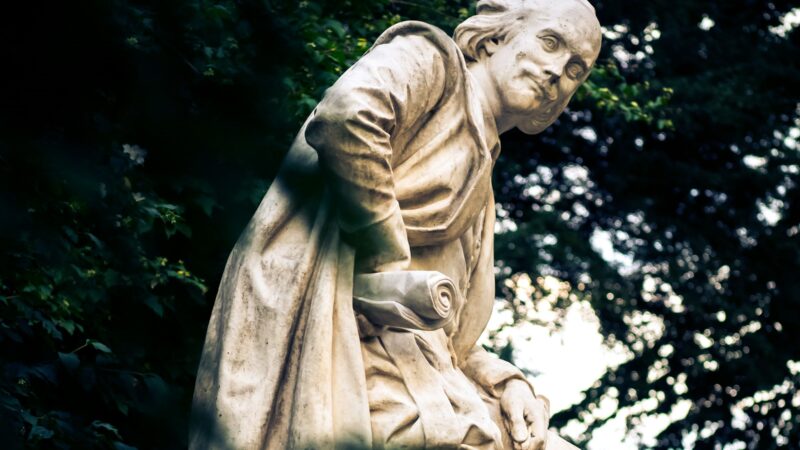
Cycling Around Japan
In early 2023, I began watching NHK (Japan’s state broadcaster, akin to the BBC) and discovered a breath of fresh air. A news channel that tells the news in English and has no weird politics or stances it pushes onto you. It was from this, that I noticed that a lot of their programs were different documentaries, mostly which were short that depicted various aspects of the nation’s culture and history. These often ranged from showcasing different cuisines to local history and sports from across Japan. It was from this, that I ended up on a show called ‘Cycling around Japan’, a simple show I must admit of individuals as the name would suggest, that cycle around Japan. A typical episode can be found here.
Its format is simple: follow a non-native individual on a bike around Japan, watching them interact with and appreciate the different locations across the country. As someone who has never been to Japan, nor bikes, why should I be drawn to such programming especially as it is something that would not attract an individual like myself? To understand that question, we must first look closer to home as to why I do not watch my country’s state broadcaster.
Although criticism of the BBC has always really existed, it has become heightened in the last twenty years regarding the content it produces and its lack of impartiality. What the BBC typically used to do well in was its long-form documentaries, we can think of these being narrated by individuals like David Attenborough. Additionally, there are also short formatted programs that showcase the beauty and appreciation for the country we call home. From this great catalog of work, we now look at the BBC and its programs. A recurring trend we have seen emerge is that of the widespread self-hatred that makes up the BBC and often its presenting class. In recent years numerous programming and shows have been produced on the failings and detractions of Great Britain and the British people. Of course, the BBC still does produce great work and shows for all, but the rest of the time it suffers from an oikophobic disease which is particular to the modern West. But NHK does not have/ hold this problem, the programming is largely these very respectful documentaries that promote Japan and its people.
The real question should be this, why does NHK work and the BBC receive widespread criticism? Well, I would argue it is because of shows like Cycling Around Japan, which we can contrast with other shows. How many times have you watched a show or a piece of media from the BBC, which has either been presented by someone who does not like the country they call home or completely misrepresents the nation as a whole? There is no Afua Hirsch, no David Olusoga and no Kehinde Andrews. I would argue this is part of a wider historical trend of showing only one side of a story, portraying the West/Europe in an ultimately negative light.
So why is Cycling around Japan different?
Firstly, this is common across all NHK shows. Nearly all the presenters have a deep love and interest in Japan, the subject matter they are dealing with. Moreover, all the non-Japanese who do the cycling speak fluent Japanese, having lived in the country for a decade-plus, possessing an already basic level of respect and appreciation for the culture they are traveling through and exploring. There are times when BBC presenters are not too interested in presenting Britain at all, opting to address their subjects at an arms-length with a slight hint of embarrassment. NHK does the complete opposite.
A show like Cycling Around Japan, works due to its simplicity and its appeal to traditional life, which for many makes the country a place of envy. From meeting furniture makers and sake brewers, we are constantly seeing and interacting with individuals dedicated to the perfection of their craft. It is this focus and interest in a wide range of activities all across the country, that creates this understanding and love of the little things in life. Combined with the added interest in beautiful scenery, clean peaceful streets, and rich history, we cannot help but fall in love with such a nation. A wholesome slice of life shown to us through the eyes of an English-speaking, non-Japanese person who throws themselves into every interaction and encounter.
This is partly why NHK works and the BBC does not; its state broadcaster has lost this love and appreciation for the country it calls home and subsequently cannot produce anything like this of substance. What we can observe is something rather achievable, a national broadcaster that produces simplistic but enjoyable content that is not self-loathing. Indeed, content can be as simple as allowing a non-native to cycle around the country, meeting and learning about the nation as they go, and make for an excellent watching experience. Meeting artisans, farmers, and musical instrument makers, we are presented with a truer reflection of the country and its many inhabitants.
Photo Credit.